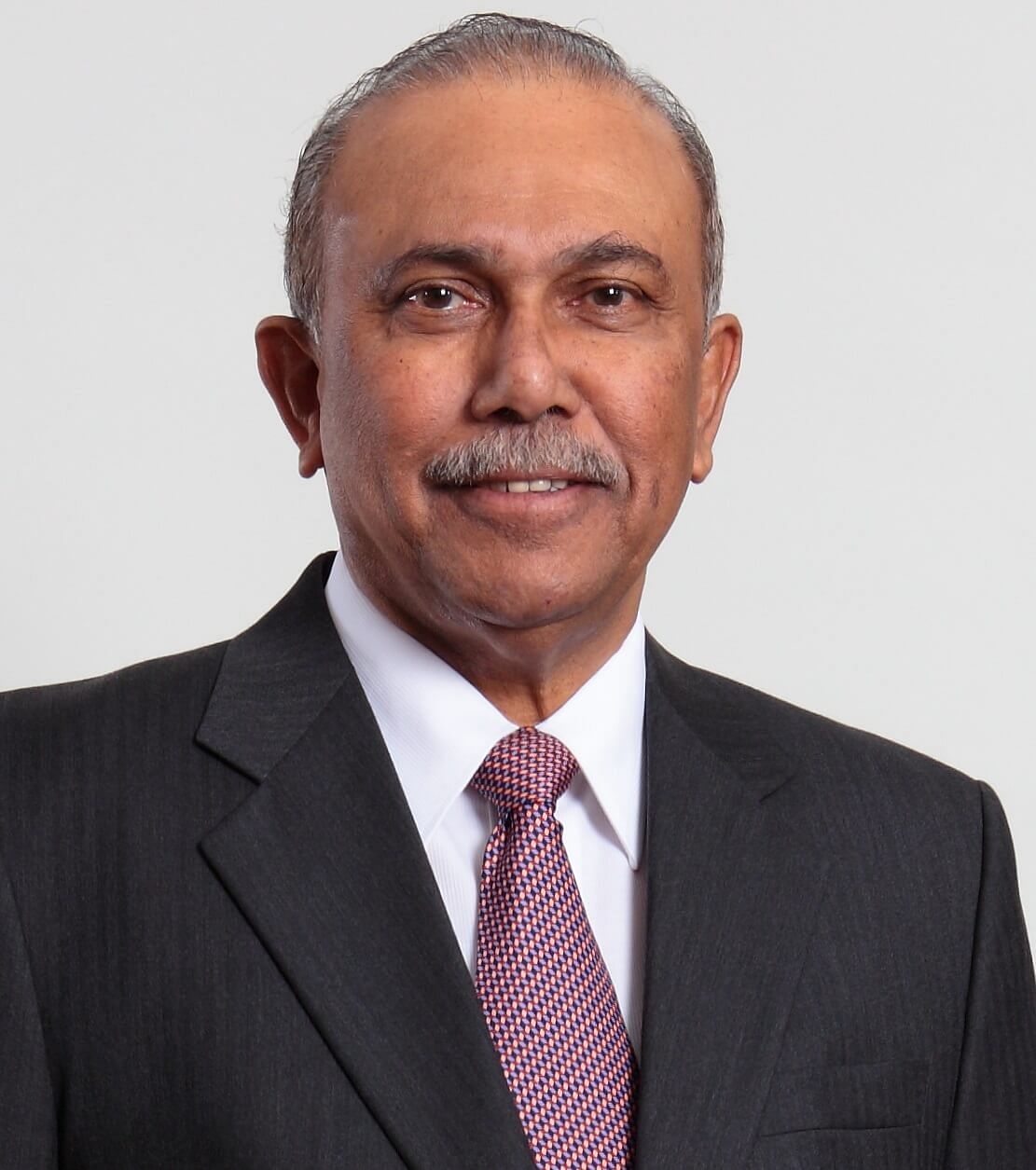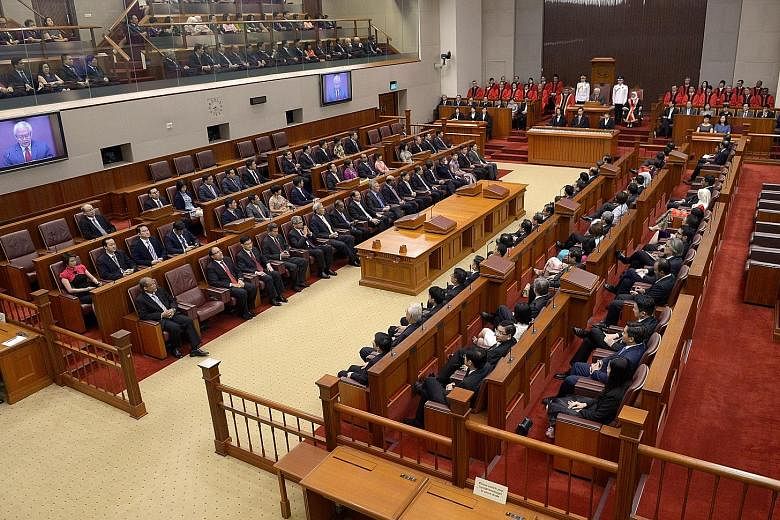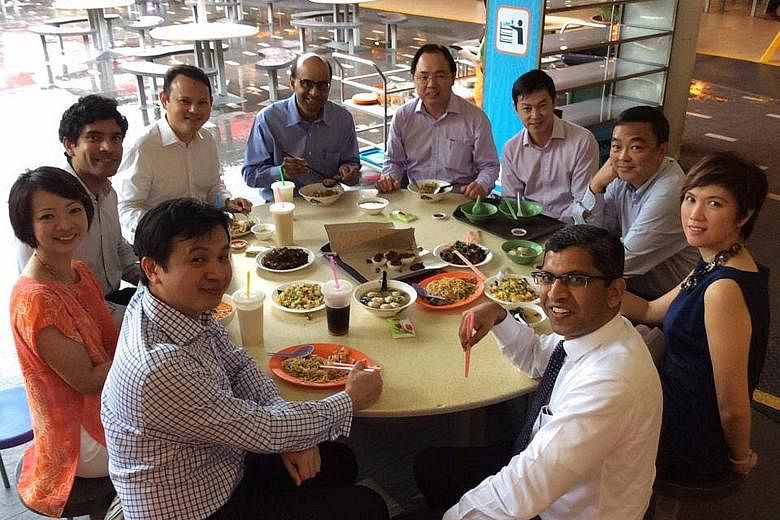Back in 2011, the Government had a longstanding policy not to build new hawker centres. But when People's Action Party (PAP) MP Liang Eng Hwa joined the Government Parliamentary Committee (GPC) for Environment and Water Resources that year, he felt strongly that this should be reversed.
"Hawker centres are important because they help keep food prices affordable, preserve hawker culture and are a common space where Singaporeans from all walks of life can come under one roof to have a meal," he tells Insight.
He raised this issue during a GPC meeting and to then Environment and Water Resources Minister Vivian Balakrishnan, who was open to the suggestion.
"The minister was able to persuade the Cabinet of its merits, and the ministry announced the building of 10 new hawker centres later that year," he says.
"Ministers may not always acknowledge this in their speeches, but I have no doubt that inputs from GPC MPs have made a difference in many policies formulated," he adds.
What happened in Mr Liang's anecdote - a GPC pulling off a policy change - is more common than one might expect.
Speaking to Insight on the 30th anniversary of GPCs, current and former PAP MPs who have led these committees say there is no question that GPCs have had a positive impact on the political system - sometimes working in public, other times behind closed doors.
But they add that the effectiveness of GPCs can be uneven, and that changescan be made to the way they function to ensure they continue to remain relevant.
Insight analyses these issues.
HOW GPCs CAME ABOUT
GPCs are committees, each made up of six to 10 PAP backbench MPs.
There are currently 12 GPCs, each covering a policy domain, roughly mirroring the various ministries.
Mr Liang, for example, chairs the GPC for Finance and Trade and Industry. He also sits on the GPC for Environment and Water Resources.
The assigning of policy domains allows MPs to be more focused in carrying out their work.
They meet the relevant minister and ministry officials, and scrutinise legislation and policies. MPs become more informed because of the specialisation, which raises the standard of debate in Parliament.
"Some Bills can be very technical, and if you don't spend enough time in the area you are tagged to, you may not pick up the finer details," says Mr Zaqy Mohamad, who chairs the GPC for Communications and Information.
As MPs are on the ground a lot, they also channel feedback to the Government, and help explain government policies to voters. GPCs sometimes also act as a sounding board for ideas from ministries.
The political context of 1987 -the year GPCs were set up - was that the second generation of PAP Cabinet ministers had emerged and had begun to take charge of the affairs of government. They were setting the tone of the new leadership under Mr Goh Chok Tong, who was First Deputy Prime Minister. Mr Lee Kuan Yew was Prime Minister.
Mr Goh was inclined to a more consultative and participative way of governing. A number of institutions initiated by him after the 1984 General Election reflect this different style, including the Feedback Unit (gathering feedback from the public), the Institute of Policy Studies (engaging intellectuals on government policies) and GPCs.
In 1987, there was only one elected opposition MP in Parliament - Mr Chiam See Tong.
"Because of the lack of opposition in Parliament, and the population's desire to see some, Mr Goh came up with the idea that we should become some kind of internal opposition or proxy opposition," says Dr Aline Wong, who was among the first group of GPC chairmen, heading the health committee.
She was an MP from 1984 to 2001.
MPs state their GPC preference to the party, and the PAP leadership makes the final decision.
After GPCs are formed, they elect a chairman among themselves.
GPCs rely on resource panels, made up of experts in relevant fields who advise MPs in the GPCs on a voluntary basis.

Mr Chandra Das was MP from 1980 to 1997 and has chaired the GPC for Defence and Foreign Affairs, and that for Finance and Trade and Industry.
He says the resource panel, as well as ministry briefings, are vital to keeping MPs well briefed. The resource panel for his latter GPC included leaders in the world of business and banking, such as Mr Peter Seah and Mr Koh Boon Hwee, both of whom later served separate stints as chairman of DBS bank.
During the Committee of Supply debate every year in Parliament, where ministry budgets are scrutinised, each GPC would divvy up the topics among its members, "to ensure all key bases are covered", says Ms Denise Phua, who chairs the GPC for Education.
GPCs are also known to keep ministers informed of questions they are going to ask in advance.
"It was a kind of benign collusion," says Professor Hong Hai, an MP from 1988 to 1991, who was the first to suggest the idea of forming GPCs to Mr Goh during his PAP recruitment tea before the 1988 General Election.

Sometimes, this coordination happens across GPCs. Mr Das, who has served as coordinating chairman among GPCs, recalls a year when the GPC chairmen came together to allocate more time for questions to the Health Ministry, since there was greater public interest in health issues that year.
"Mr Yeo Cheow Tong was Acting Minister for Health. He joked that he nearly lost his job. But luckily, he performed well and was confirmed subsequently," says Mr Das.
HOW EFFECTIVE ARE GPCs?
One key factor that determines how effective GPCs are is the attitude of the minister towards the GPC covering the ministry, say MPs.
Mr Das says: "Some ministers are very forthcoming. The GPCs are given access to the information we need, and we work well with them. But some ministers treat GPCs as a nuisance, and GPC work becomes very perfunctory."
Ms Phua adds: "Some ministers and officials are more open than others. Some are more defensive and less open to share."
Another major issue is credibility.
From the beginning, Mr Goh knew that GPCs could not be effective if they were not seen by the public as being credible.
Mr Goh told the GPC chairmen in 1987 that "where they disagree with a certain policy, they can say so and argue their case".
In 1991, four opposition MPs were elected. This was a significant development, as the GPC system was premised on the fact that there was virtually no opposition in Parliament. Prof Hong says that after 1991, there was a mellowing of the GPCs because of the need for the PAP to close ranks.
Mr Das acknowledges a change in form, noting that while questions could still be asked in private, there was more internal discipline in public. "Why should I kick the ball into my own goal, or give the opposition ammunition to shoot at my own people?" he says.
But MPs today make the case that there is no holding back on their part. Ms Phua describes her meetings with ministers as "no holds barred". She has also not been told what not to say in public.
She adds: "It is not my style to speak against my conscience or to stop myself from voicing my genuine concerns for the system as a representative of the people."
Says Ms Lee Bee Wah, who chairs the GPC for Environment and Water Resources: "We are accountable to our residents - every five years at the ballot box, and weekly or even daily when we meet them. So we don't hold back from reflecting their concerns."
Whether these concerns are reflected behind closed doors or in Parliament, many GPC recommendations have led to policy changes.
Ms Phua cites the move towards a more holistic education as a change her GPC has been advocating for, and is now under way.
Mr Liang notes that doing away with means testing under the Pioneer Generation Package was strongly advocated by his GPC.
Mr Das recalls his GPC lobbied for an embassy in South Korea, arguing that the growing number of Singapore businesses there needed to be served. The embassy opened in 1989.
HOW SHOULD GPCs EVOLVE?
MPs and observers offer a number of suggestions on how GPCs can be enhanced.
Mr Inderjit Singh, who was an MP from 1997 to 2015 and chaired the GPC for Finance and Trade and Industry, argues that involving GPCs earlier in the legislative process would raise the impact of GPC work. Mr Liang and Ms Phua agree.
Ms Phua adds that this should apply not just to legislation, but also to policy formulation: "GPCs can be engaged more in developing policies at an earlier stage, for example, at fact-finding and framing phases, instead of waiting to get inputs downstream."
Ms Lee suggests allowing GPCs to specialise further. For example, within the GPC for National Development, some may want to look at issues related to the Housing Board, and others to the Agri-Food and Veterinary Authority.
To raise the profile of GPC work, it may be useful to take a collective stand as a GPC more often, says Dr Wong. At the moment, although GPCs coordinate internally by covering different issues, they tend to speak in Parliament as individual MPs and not as a GPC, she notes.
There is also scope for GPCs to engage with the public more by sourcing feedback more actively and publicly, adds Professor Eugene Tan of the Singapore Management University.
"They can also engage ministries and statutory boards more publicly and publish their activities on an annual basis. This can be a positive development if the public becomes more aware of the GPC's purpose and how it can be an additional feedback channel," he says.
Prof Hong adds that there needs to be a greater willingness for PAP MPs to voice any disagreements with ministers in public. This is a valuable and informative opportunity to observe the public's reaction, he says.
Disagreements are also important for the credibility of MPs, and for the robustness of the party as a political institution, he says.
"A party can't be resilient if you do not have some internal contention of ideas.
"Having some public airing of that contention will actually strengthen the PAP. It will give the PAP a much better image," he says.
Should non-PAP MPs be included?
Should Government Parliamentary Committees eventually evolve to include not just MPs from the ruling People's Action Party (PAP), but also MPs from other parties and Nominated MPs (NMPs) as well?
This question has existed since then First Deputy Prime Minister Goh Chok Tong set up the GPC system in 1987, as he raised it as a potential development for the future.
In a speech to civil servants in February 1987, just before GPCs formally began, he said: "GPCs are not similar to select committees, which include representation from all parties in Parliament. Whether they evolve into select committees will depend on our experience with them."
Thirty years on, there do not seem to be plans on the part of the Government to include non-PAP MPs. But there are voices calling for this to be considered at some point.
Institute of Policy Studies deputy director Gillian Koh says: "If we wish to look at ways to reform GPCs and make the idea of parliamentary committees more relevant to the times as well as our future challenges, then one change is to introduce committees that allow for cross-party participation.
"This will be another step in the maturation of our parliamentary and political system. We need to facilitate more avenues for detailed, deliberative, well-informed processes of giving input to the crafting of laws and public policy."
Former PAP MP Inderjit Singh, who served from 1997 to 2015, believes that Singapore's political system is ready for this step.
He says: "I think there is no harm involving opposition MPs and NMPs in the GPCs, like what is currently practised in many Parliaments. We can call them just PCs. Our system has matured enough to allow for greater debate 'offline' in addition to debate in Parliament."
Currently, the Workers' Party (WP) is the only opposition party in Parliament. It has nine seats, including six elected seats and three Non-Constituency MP seats.
Responding to questions from Insight on the WP's position on GPCs, assistant secretary-general Pritam Singh says non-ruling party MPs are, like PAP MPs, duly elected by the people and hence have the same responsibility to scrutinise legislation and executive action.
He adds: "Thus, briefings on governmental and legislative matters by civil servants or other relevant parties to MPs should be extended to MPs from both parties represented in Parliament. In this vein, the WP has called for bipartisan standing select committees for each ministry and a bipartisan standing public consultation select committee."
But not everyone sees cross-party committees as being necessarily a positive development. PAP MP Zaqy Mohamad, who is chairman of the GPC for communications and information, feels that with such a change, some useful elements of the present GPCs will inevitably be lost.
"The dynamics will change," he says. Because GPCs are made up of PAP MPs, there is a relationship of trust between GPCs and ministers, he notes. Ministers are hence prepared to share information at an earlier stage and to co-develop policies with GPCs, or to use the conversations with GPCs to do early sensing on upcoming changes.
But this function is likely to be lost in bipartisan committees because the role of such committees will primarily be one of checks and balances, and the relationship will become more adversarial in nature, he says.
"So there is no right or wrong answer. It depends on what you want the committees to do," he adds.
Elgin Toh



